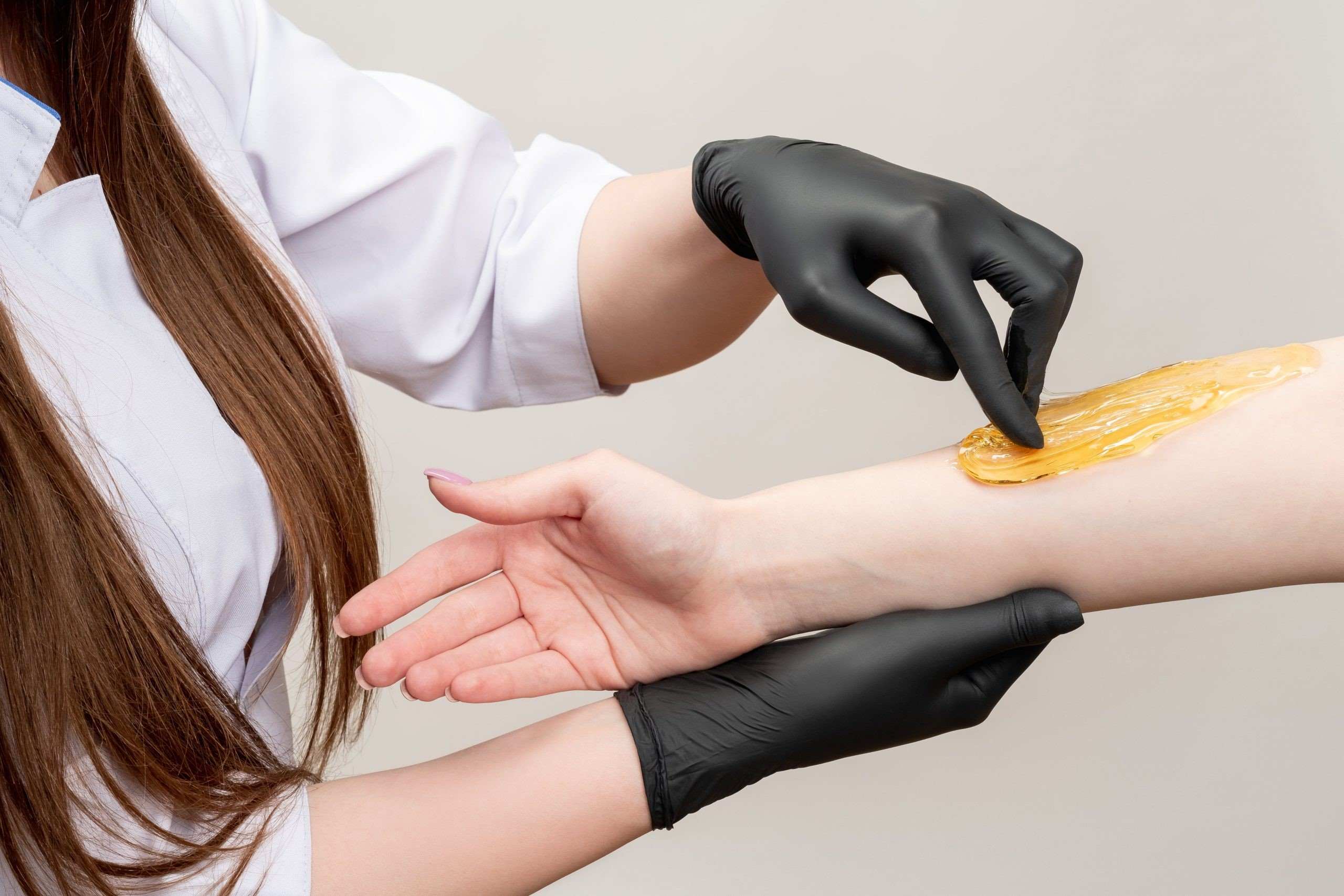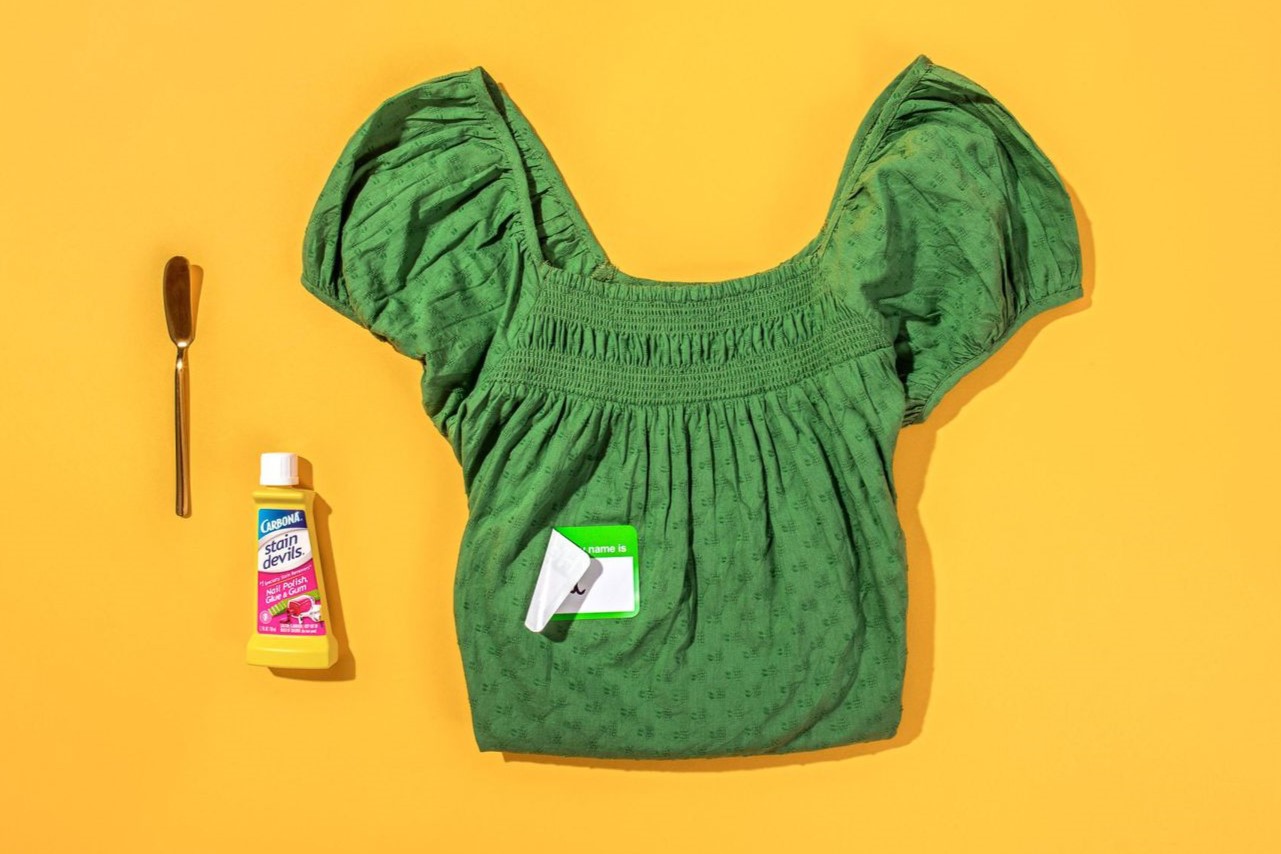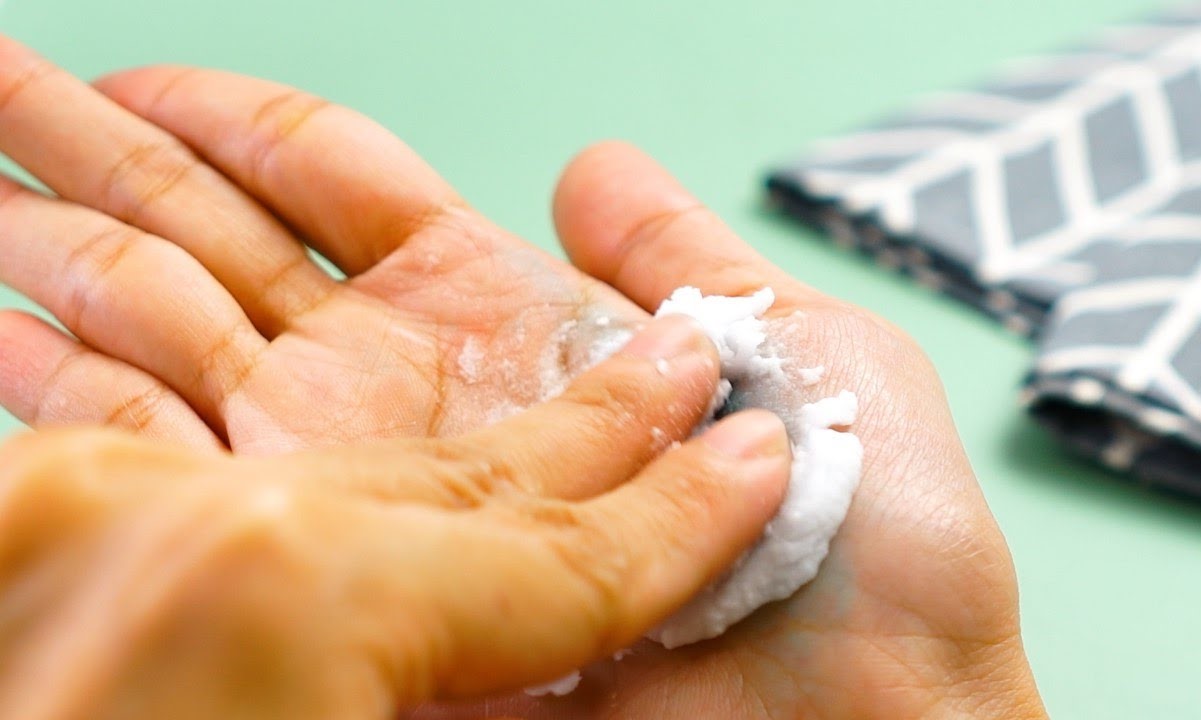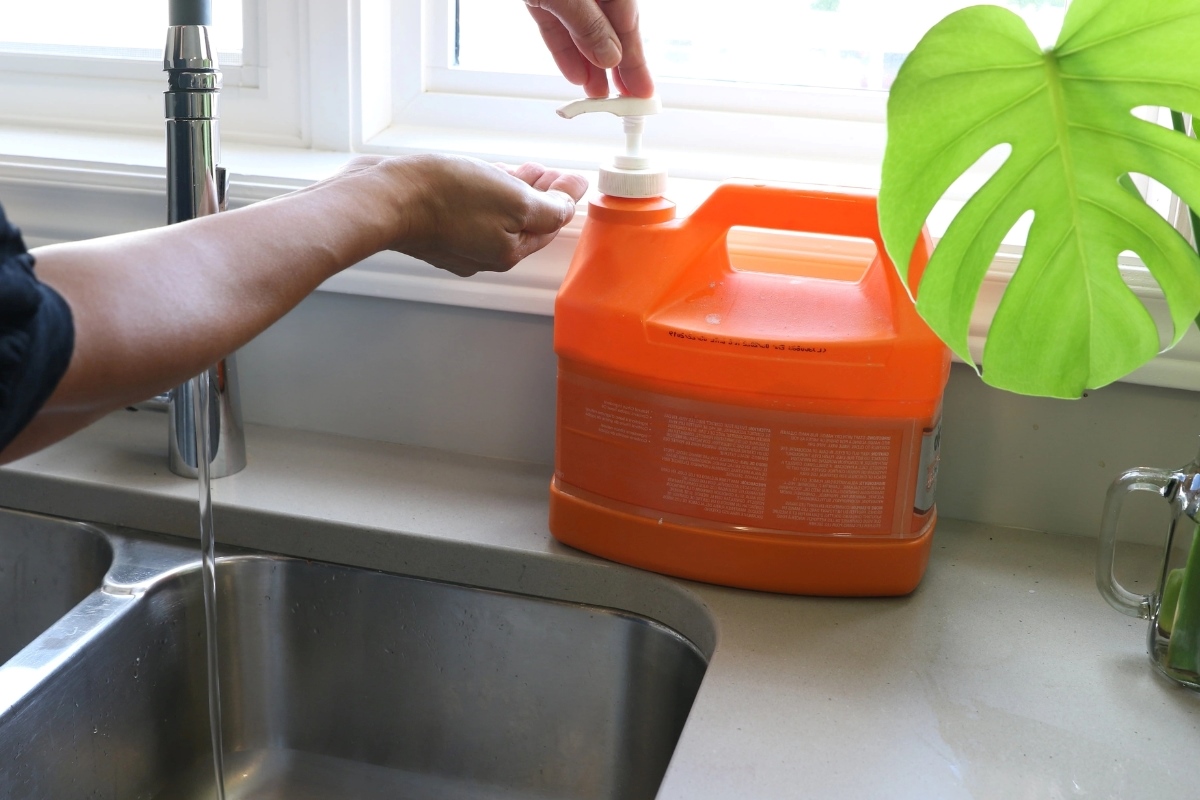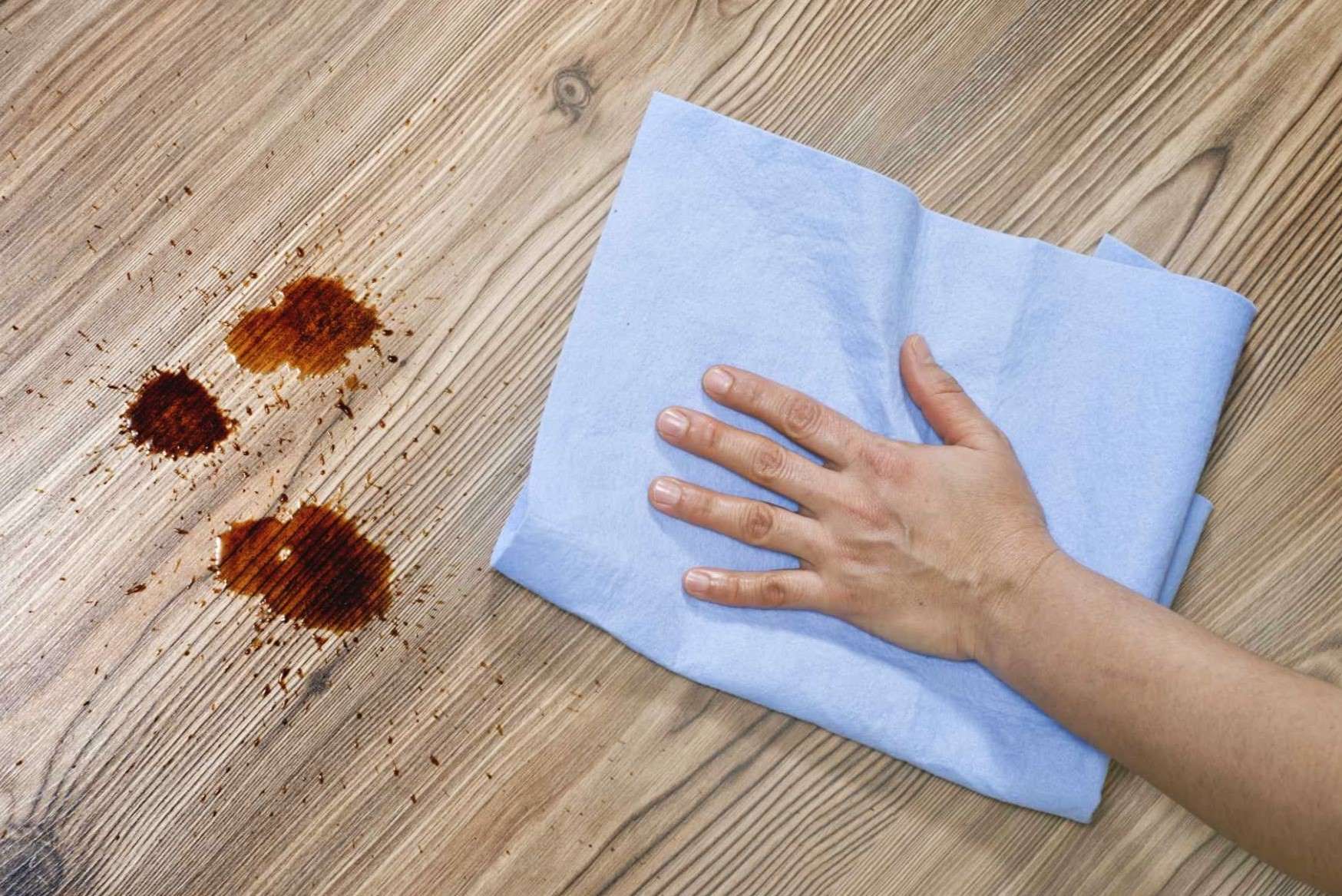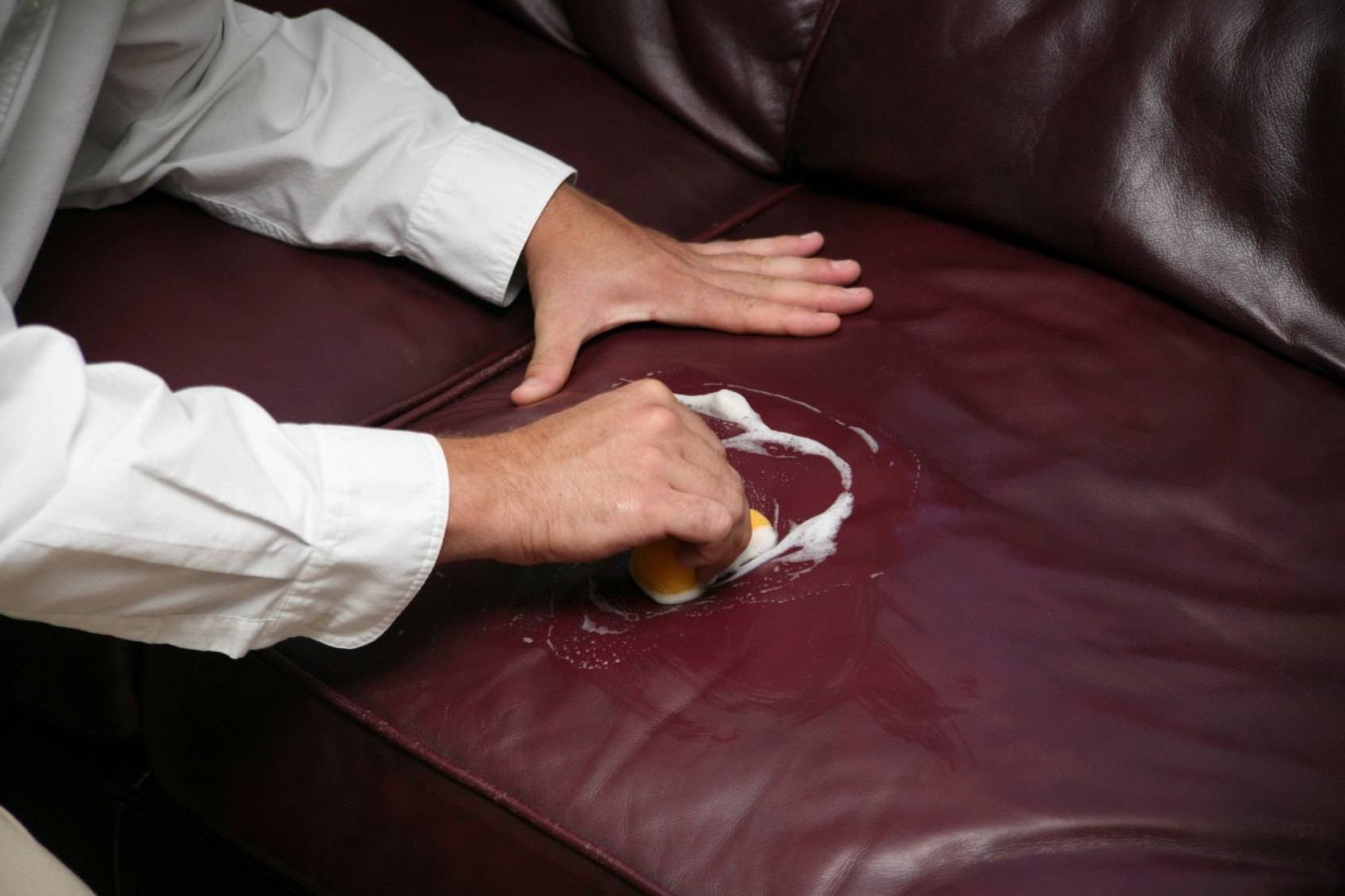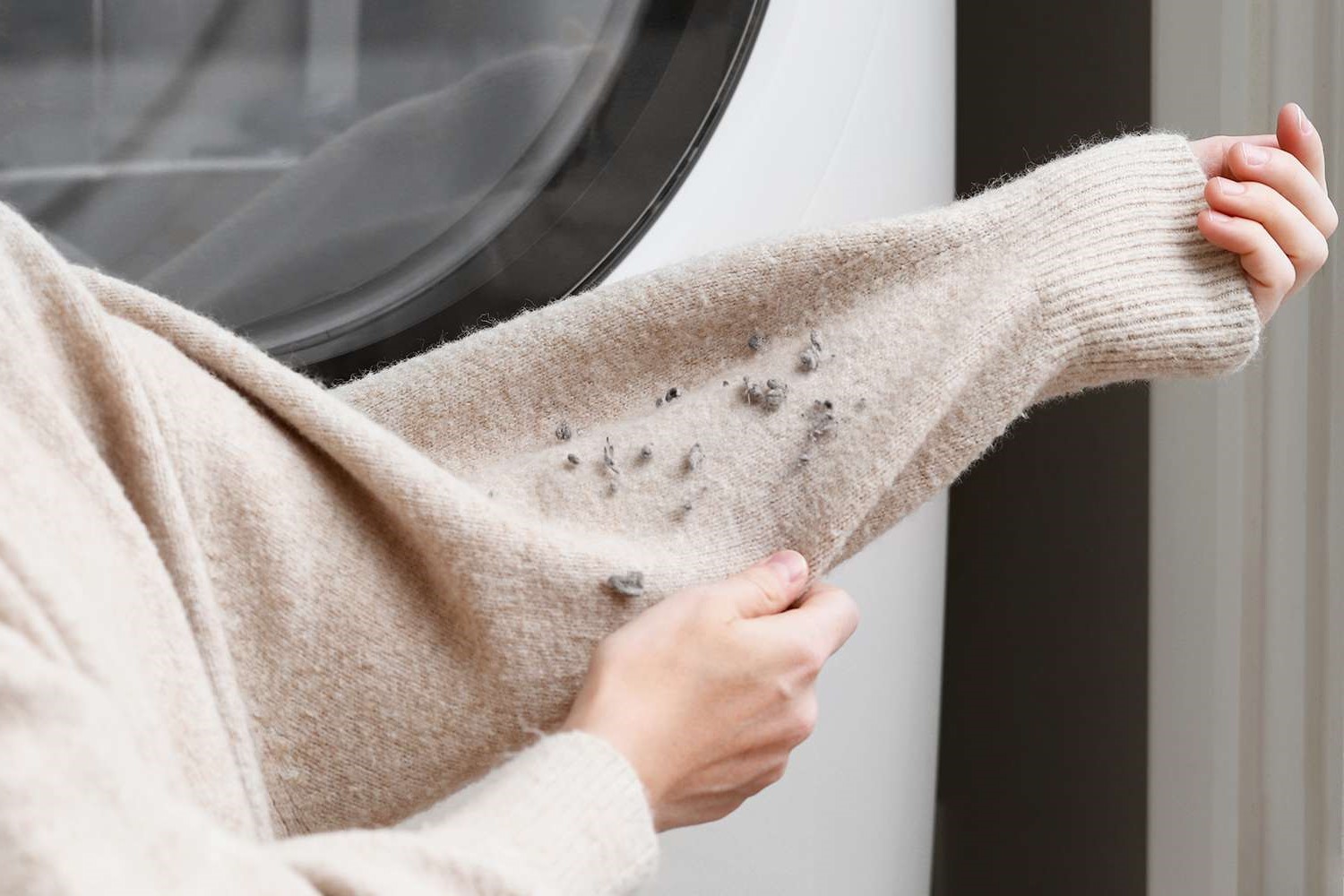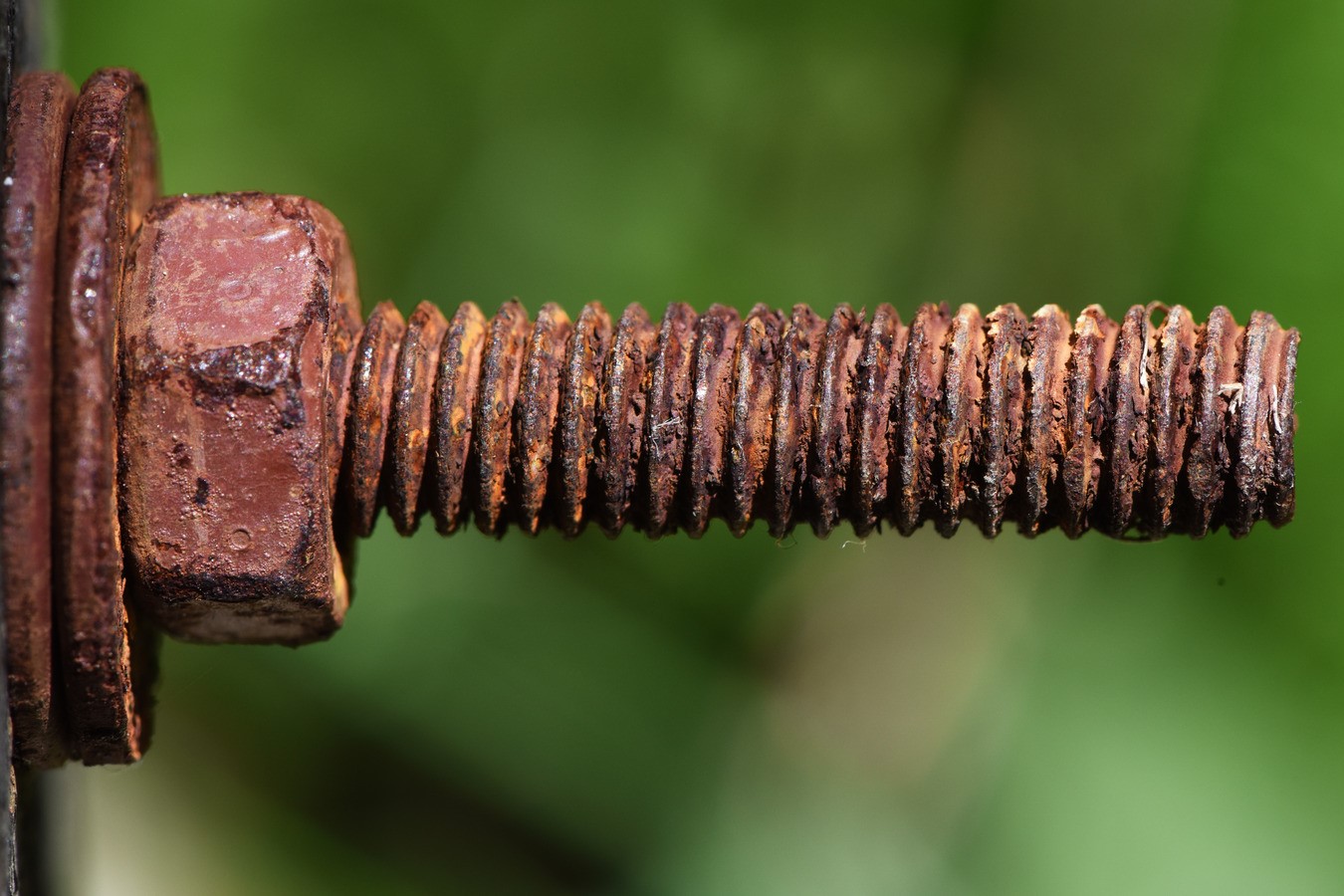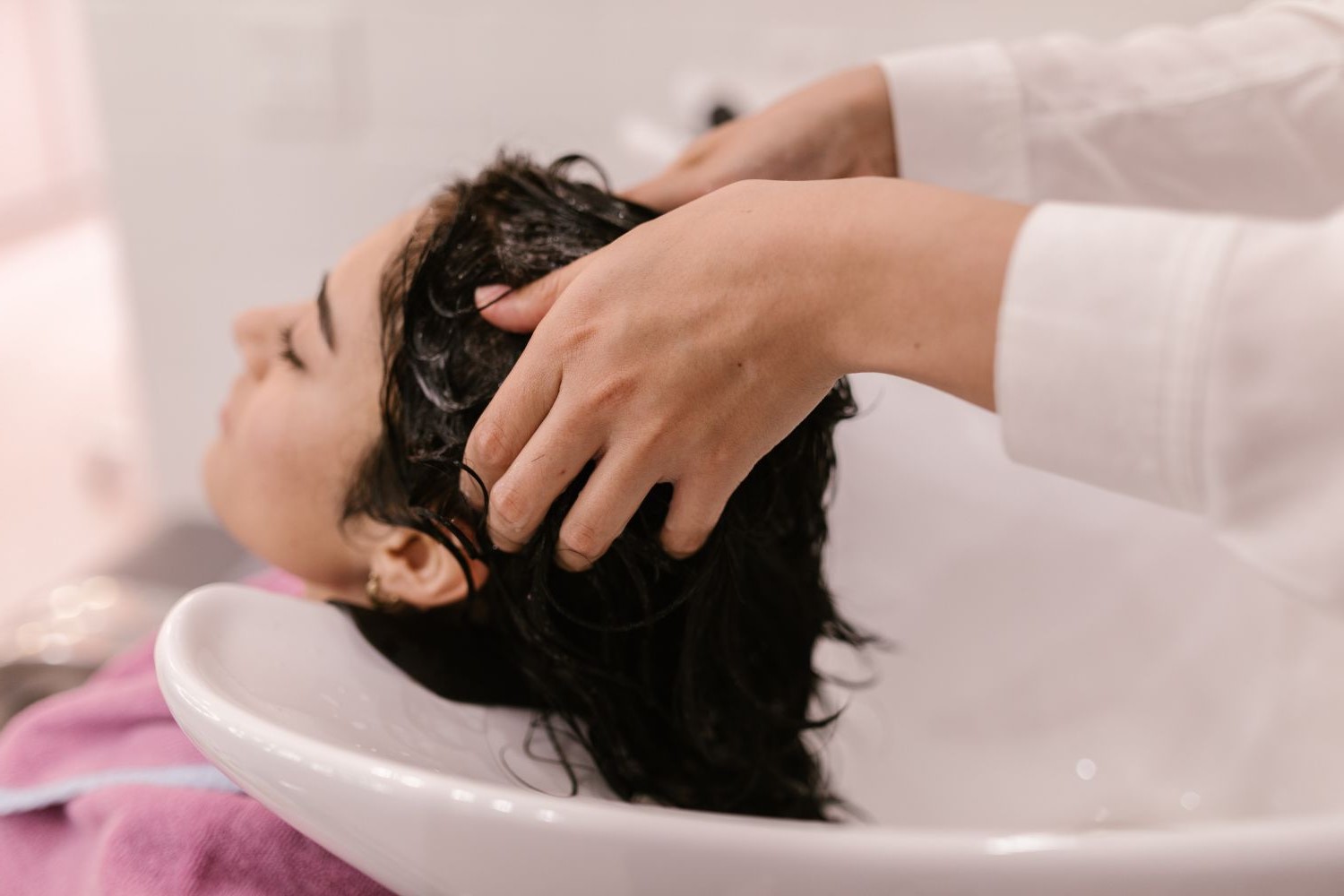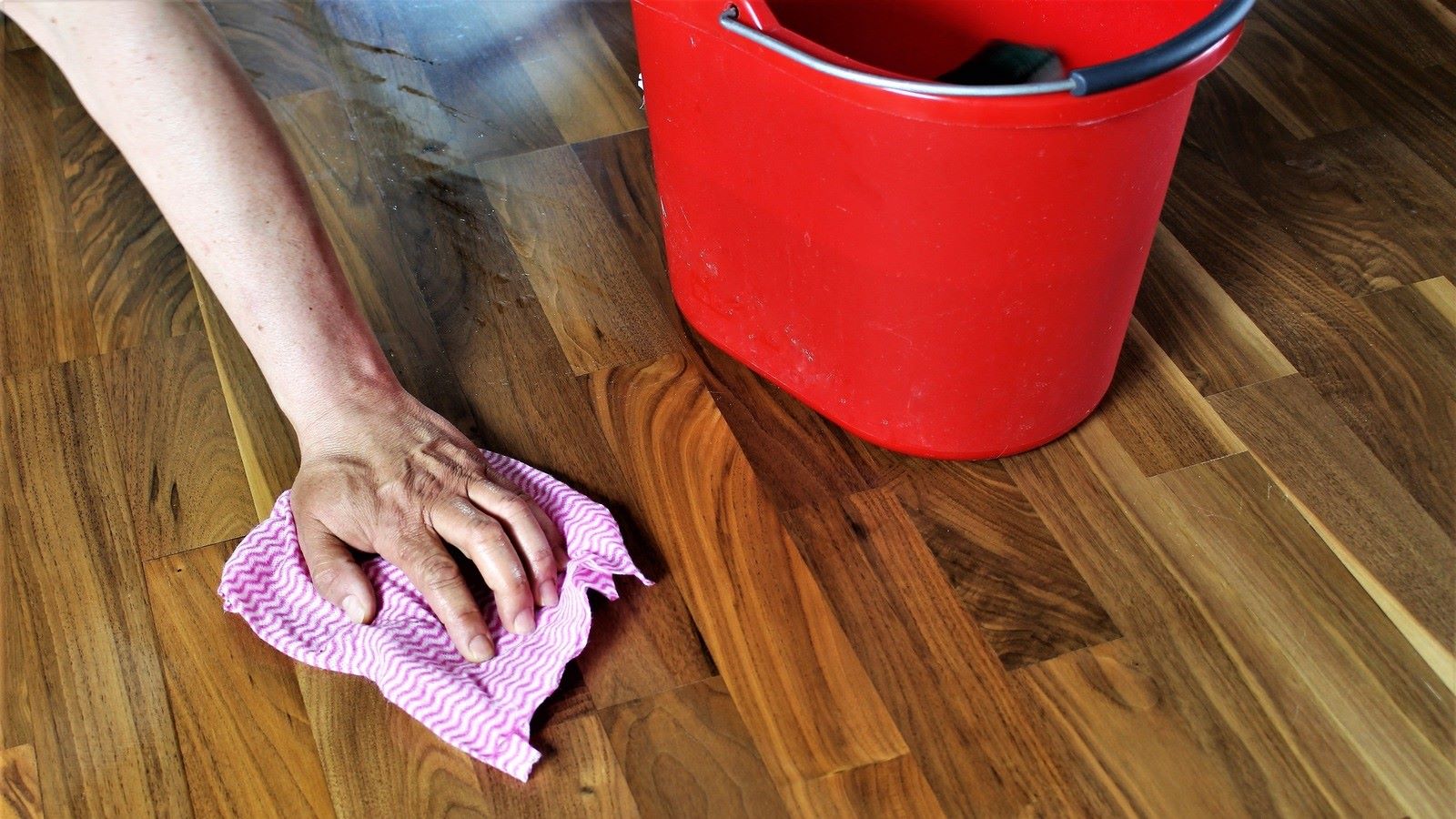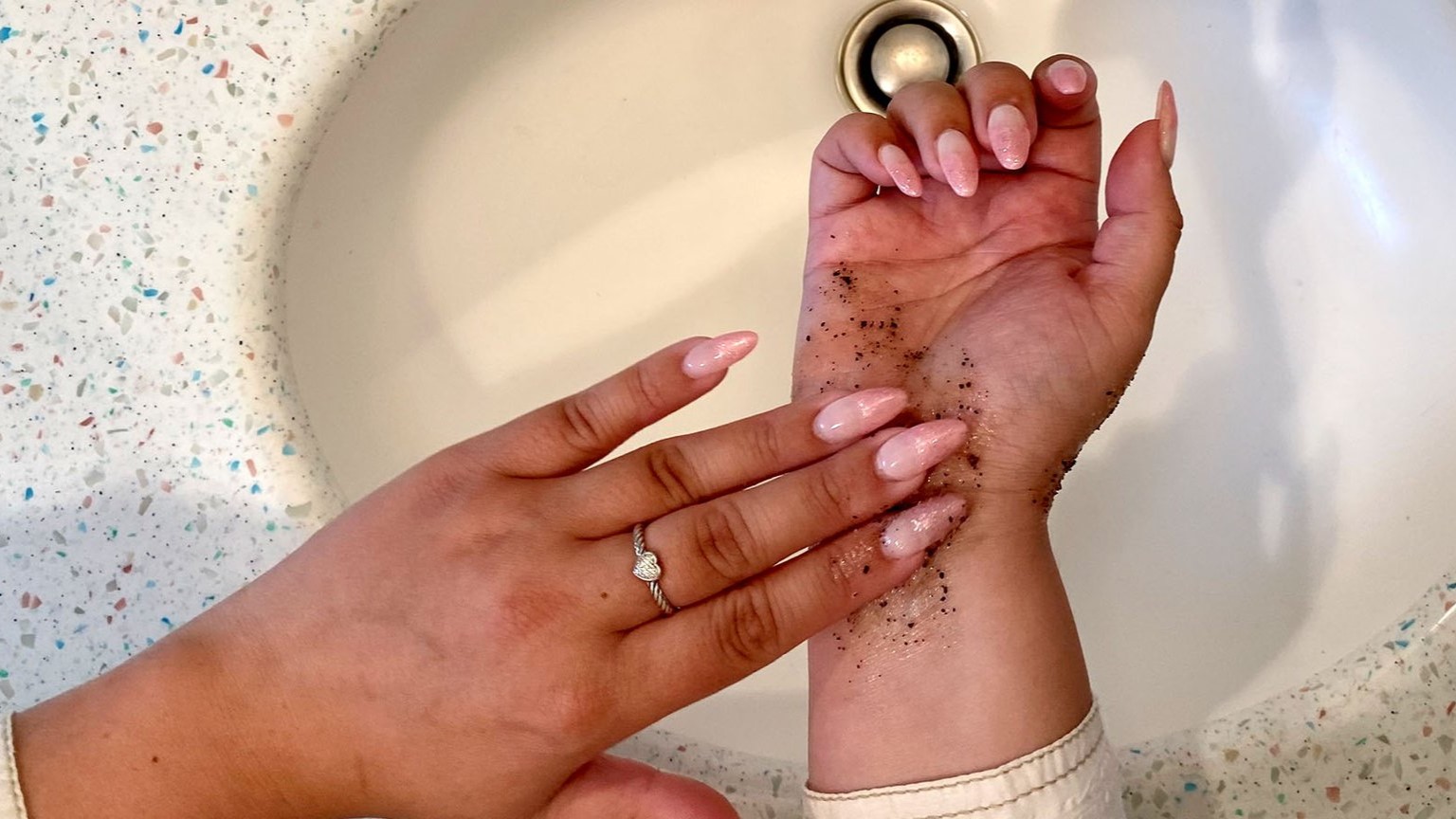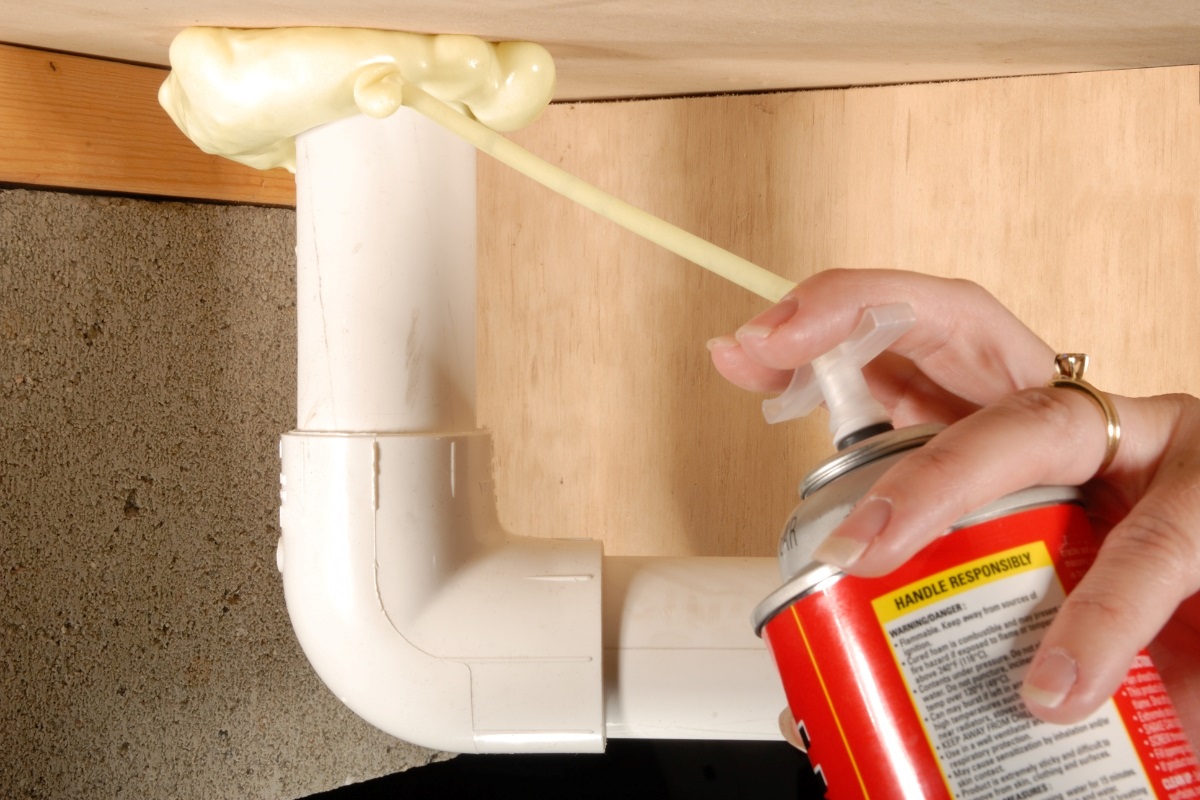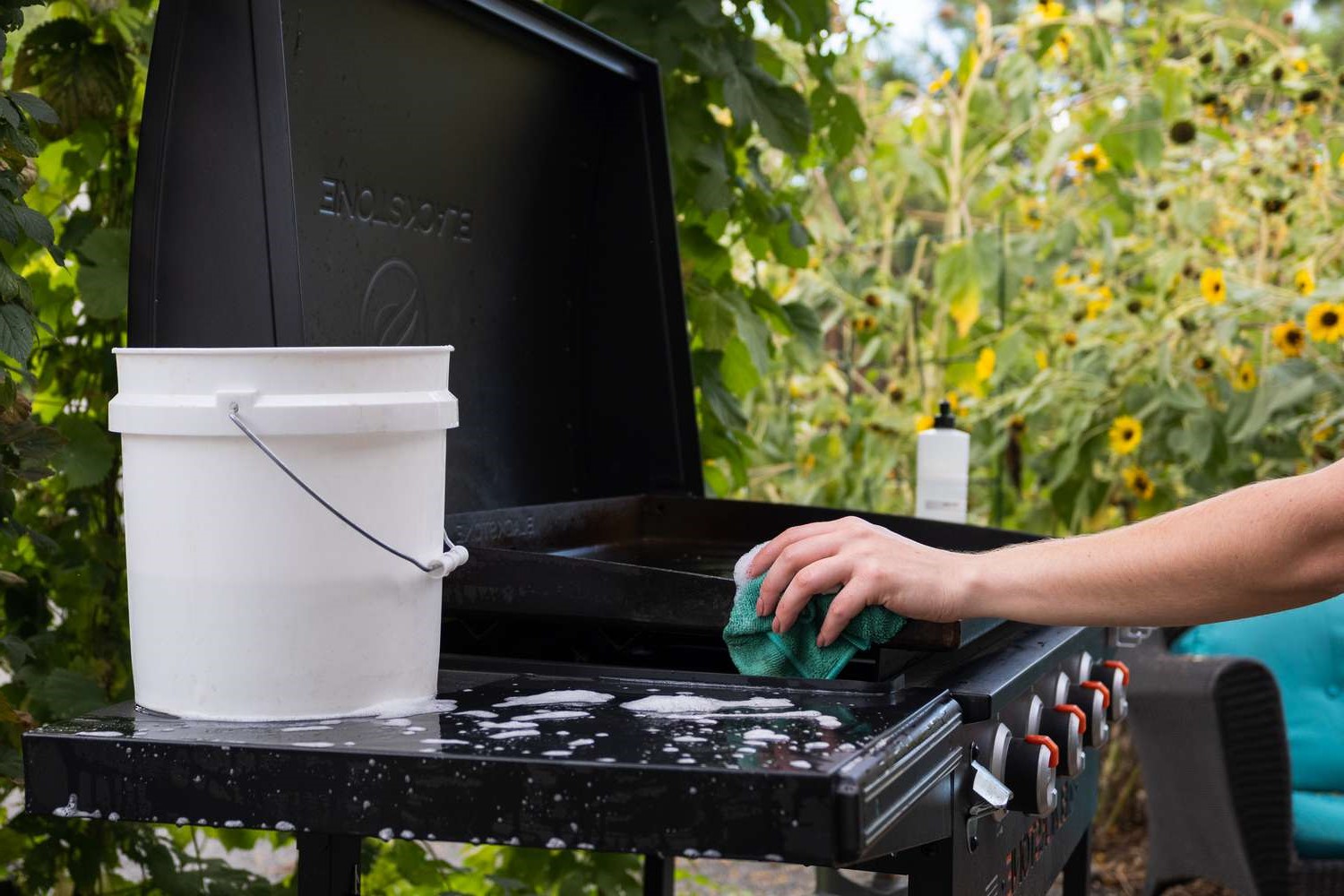Home>Home and Garden>How To Get Rust Off Blackstone
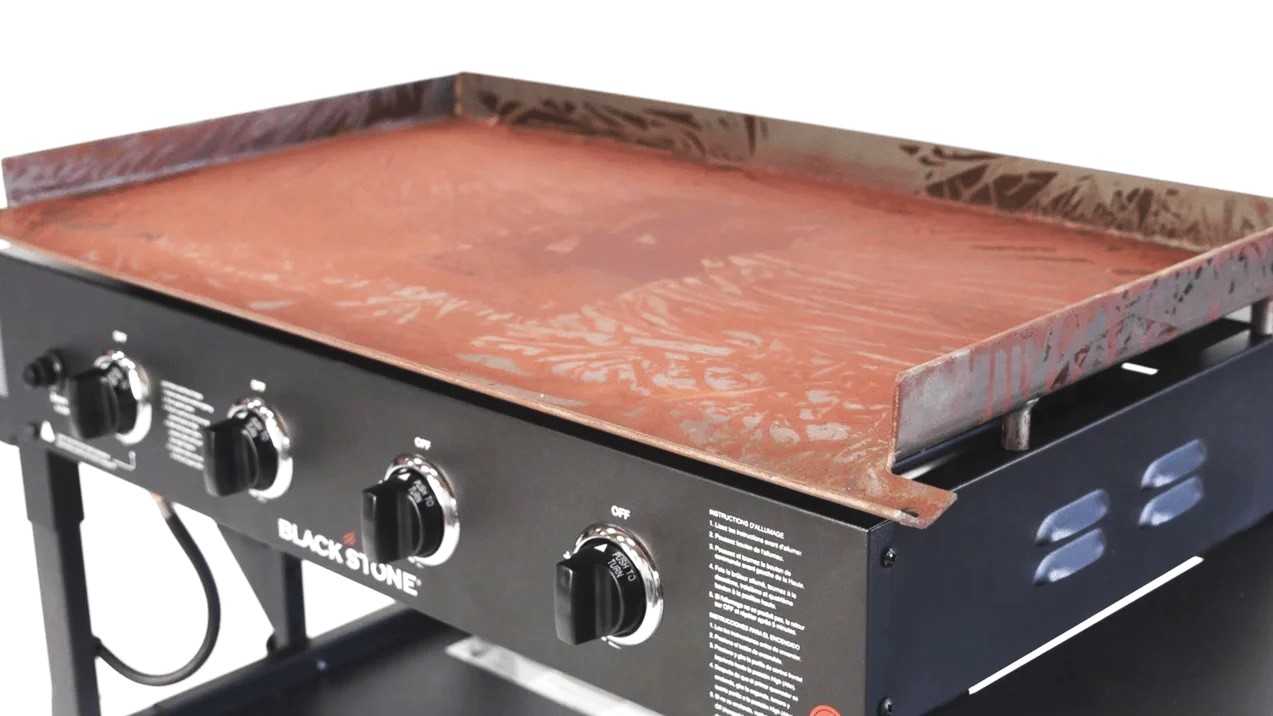

Home and Garden
How To Get Rust Off Blackstone
Published: March 2, 2024
Learn effective methods to remove rust from your Blackstone grill and restore its appearance. Discover simple home and garden solutions to keep your outdoor cooking equipment in top condition.
(Many of the links in this article redirect to a specific reviewed product. Your purchase of these products through affiliate links helps to generate commission for Noodls.com, at no extra cost. Learn more)
Table of Contents
Introduction
Rust can be a persistent nuisance, especially when it appears on beloved outdoor cooking equipment like a Blackstone griddle. The unsightly reddish-brown blemishes not only detract from the griddle's appearance but can also compromise its functionality over time. Fortunately, there are effective methods for removing rust from a Blackstone griddle and preventing its recurrence. In this comprehensive guide, we will explore various techniques for tackling rust on Blackstone griddles, from natural DIY remedies to commercial rust removers. Additionally, we will delve into preventive measures to safeguard your Blackstone griddle against future rust formation. Whether you're a seasoned grilling enthusiast or a novice outdoor chef, this article will equip you with the knowledge and tools to restore your Blackstone griddle to its former glory and keep it rust-free for many cookouts to come.
Read more: How To Get Paint Off The Floor
Understanding the Rust on Blackstone
Rust, scientifically known as iron oxide, is a common occurrence on metal surfaces exposed to moisture and oxygen. When it comes to Blackstone griddles, rust can develop due to various factors such as humidity, rain, or improper storage. Understanding the nature of rust on a Blackstone griddle is crucial in effectively addressing and preventing its formation.
The Blackstone griddle, typically made of cold-rolled steel, is susceptible to rust when exposed to moisture for extended periods. This exposure leads to the oxidation of the iron in the steel, resulting in the formation of reddish-brown rust. The porous nature of the griddle's surface can exacerbate this process, making it more prone to rust formation compared to other types of cooking surfaces.
Rust not only poses an aesthetic concern but can also compromise the integrity of the griddle. If left unchecked, rust can spread and weaken the metal, potentially leading to structural issues and affecting the griddle's performance over time. Additionally, rust particles can mix with food during cooking, posing health risks and altering the taste of the dishes.
It's important to note that rust on a Blackstone griddle is not indicative of poor quality. Instead, it is a natural consequence of the griddle's exposure to the elements. However, with proper care and maintenance, rust formation can be minimized, preserving the griddle's appearance and functionality.
By gaining insight into the factors contributing to rust formation on a Blackstone griddle, individuals can take proactive measures to address the issue effectively. Whether through regular cleaning, protective coatings, or implementing preventive strategies, understanding the nature of rust on a Blackstone griddle empowers users to maintain their outdoor cooking equipment in optimal condition.
Understanding the underlying mechanisms of rust formation on a Blackstone griddle serves as the foundation for implementing targeted solutions to remove existing rust and prevent its recurrence. With this knowledge, griddle owners can embark on the journey to restore and preserve their beloved outdoor cooking companion for years of rust-free culinary adventures.
Methods for Removing Rust from Blackstone
When it comes to tackling rust on a Blackstone griddle, there are several effective methods for removing the stubborn reddish-brown blemishes. Whether opting for natural DIY remedies or commercial rust removers, griddle owners have a range of options to restore their cooking surface to its former glory. Here are some tried-and-true methods for removing rust from a Blackstone griddle:
Using Vinegar and Baking Soda
A popular and environmentally friendly approach involves using a combination of vinegar and baking soda to combat rust on a Blackstone griddle. To begin, create a paste by mixing baking soda with white vinegar until a thick consistency is achieved. Apply the paste directly onto the rusted areas of the griddle, ensuring thorough coverage. Allow the paste to sit for a few hours, allowing the acidic properties of the vinegar to loosen the rust. After the designated time has elapsed, gently scrub the treated areas with a non-abrasive sponge or brush. The combination of vinegar and baking soda works to dissolve the rust, making it easier to remove without causing damage to the griddle's surface.
Using Lemon Juice and Salt
Another natural remedy involves harnessing the power of citric acid found in lemon juice to combat rust on a Blackstone griddle. Begin by generously squeezing fresh lemon juice onto the rusted areas of the griddle. Next, sprinkle a liberal amount of salt over the lemon juice, creating a mildly abrasive paste. Allow the mixture to sit for several hours, enabling the acidic properties of the lemon juice and the abrasive nature of the salt to work in tandem to loosen and lift the rust from the griddle's surface. Following the soaking period, gently scrub the treated areas with a sponge or brush, effectively removing the loosened rust. This method not only eliminates rust but also imparts a fresh citrus scent to the griddle, enhancing the overall cooking experience.
Read more: How To Get SNS Nails Off
Using a Commercial Rust Remover
For more stubborn or extensive rust on a Blackstone griddle, utilizing a commercial rust remover can provide a powerful solution. These specialized products are formulated to effectively dissolve and eliminate rust from metal surfaces, including Blackstone griddles. When using a commercial rust remover, it is essential to carefully follow the manufacturer's instructions, ensuring safe and effective application. Typically, the process involves applying the rust remover to the affected areas, allowing it to penetrate and dissolve the rust, and then wiping or rinsing away the residue. Commercial rust removers offer a convenient and reliable option for griddle owners seeking a targeted and efficient solution for removing rust.
By employing these methods, griddle owners can effectively address rust on their Blackstone griddles, restoring them to a pristine condition and prolonging their lifespan. Whether opting for natural DIY remedies or commercial rust removers, the key lies in proactive maintenance and timely rust removal to preserve the griddle's appearance and functionality for countless outdoor cooking adventures.
Using Vinegar and Baking Soda
A popular and environmentally friendly approach to removing rust from a Blackstone griddle involves the use of a simple yet effective combination of vinegar and baking soda. This natural remedy harnesses the power of acidic vinegar and the mild abrasive properties of baking soda to combat rust and restore the griddle to its former luster.
To initiate the rust removal process, begin by creating a paste by mixing baking soda with white vinegar. The goal is to achieve a thick and spreadable consistency that can be easily applied to the rusted areas of the griddle. Once the paste is prepared, generously coat the affected areas, ensuring thorough coverage to target all traces of rust. The acidic nature of the vinegar works to dissolve the rust, while the mild abrasiveness of the baking soda aids in lifting and removing the stubborn blemishes.
After applying the vinegar and baking soda paste, allow it to sit undisturbed on the rusted areas for several hours. This waiting period is crucial, as it allows the acidic properties of the vinegar to penetrate the rust, effectively loosening its grip on the griddle's surface. During this time, the chemical reaction between the vinegar and baking soda begins to break down the rust, making it easier to remove without causing damage to the griddle's metal surface.
Following the designated waiting period, it's time to tackle the loosened rust. Using a non-abrasive sponge or brush, gently scrub the treated areas to remove the dissolved rust. The combination of vinegar and baking soda works to dissolve and lift the rust, allowing for effortless removal without compromising the integrity of the griddle's surface. As you scrub, you'll notice the reddish-brown rust giving way, revealing the clean and unblemished metal underneath.
Once the rust removal process is complete, thoroughly rinse the griddle with water to remove any residual vinegar and baking soda paste. This step is essential to ensure that no acidic or abrasive residue remains on the griddle's surface, preserving its integrity and preventing any potential damage.
By utilizing the power of vinegar and baking soda, griddle owners can effectively combat rust and restore their Blackstone griddles to a pristine condition. This natural and eco-friendly method not only eliminates rust but also promotes the longevity of the griddle, allowing outdoor cooking enthusiasts to enjoy countless culinary adventures without the hindrance of unsightly rust.
Using Lemon Juice and Salt
A natural and refreshing approach to removing rust from a Blackstone griddle involves harnessing the power of two simple yet potent ingredients: lemon juice and salt. This DIY remedy leverages the acidic properties of lemon juice and the mild abrasive nature of salt to effectively combat rust and restore the griddle to its original splendor.
To initiate the rust removal process using lemon juice and salt, begin by generously squeezing fresh lemon juice onto the rusted areas of the griddle. The citric acid present in the lemon juice serves as a natural rust dissolver, working to weaken and break down the stubborn reddish-brown blemishes that mar the griddle's surface. The application of lemon juice sets the stage for the subsequent rust removal steps, initiating the process of restoring the griddle to its pristine state.
Following the application of lemon juice, the next step involves the addition of salt to create a mildly abrasive paste. Sprinkle a liberal amount of salt over the lemon juice-coated rusted areas, ensuring thorough coverage to maximize the abrasive action. The salt serves as a gentle abrasive agent, aiding in the physical removal of the loosened rust while complementing the rust-dissolving properties of the lemon juice.
Once the lemon juice and salt mixture has been applied, allow it to sit undisturbed on the rusted areas for several hours. This soaking period is essential, as it allows the acidic lemon juice and abrasive salt to work in tandem, effectively loosening and lifting the rust from the griddle's surface. During this time, the natural rust removal process unfolds, gradually restoring the griddle to its original state without the need for harsh chemicals or abrasive tools.
After the designated soaking period, it's time to address the loosened rust. Using a non-abrasive sponge or brush, gently scrub the treated areas to remove the dissolved rust. The combination of lemon juice and salt works harmoniously to dissolve and lift the rust, facilitating its effortless removal without causing damage to the griddle's metal surface. As you scrub, you'll witness the once-embedded rust giving way, unveiling the clean and unblemished metal underneath.
Once the rust removal process is complete, thoroughly rinse the griddle with water to remove any residual lemon juice and salt mixture. This final step ensures that no acidic or abrasive residue remains on the griddle's surface, preserving its integrity and preventing potential damage.
By harnessing the natural power of lemon juice and salt, griddle owners can effectively combat rust and restore their Blackstone griddles to a pristine condition. This eco-friendly and straightforward method not only eliminates rust but also promotes the longevity of the griddle, allowing outdoor cooking enthusiasts to enjoy countless culinary adventures without the hindrance of unsightly rust.
Using a Commercial Rust Remover
When it comes to addressing stubborn or extensive rust on a Blackstone griddle, utilizing a commercial rust remover can provide a powerful and efficient solution. These specialized products are formulated to effectively dissolve and eliminate rust from metal surfaces, including Blackstone griddles. While natural DIY remedies can be effective for mild rust, a commercial rust remover offers a targeted and reliable option for griddle owners dealing with more severe rust issues.
The process of using a commercial rust remover typically begins with preparing the affected areas of the griddle for treatment. This may involve cleaning the surface to remove any loose debris or contaminants, ensuring that the rust remover can make direct contact with the rusted metal. It's important to carefully follow the manufacturer's instructions regarding surface preparation, as it sets the stage for the optimal performance of the rust remover.
Once the griddle is prepared, the commercial rust remover is applied to the rusted areas according to the product's guidelines. The formulation of the rust remover is designed to penetrate the rust, effectively dissolving it and preparing it for removal. Depending on the specific product, the application may involve brushing, spraying, or soaking the affected areas, allowing the rust remover to work its magic.
After the designated dwell time, during which the rust remover is allowed to penetrate and dissolve the rust, the next step involves removing the treated rust. This may entail rinsing the griddle with water to wash away the dissolved rust and any residual rust remover. In some cases, light scrubbing with a non-abrasive sponge or brush may be recommended to aid in the removal process. It's crucial to adhere to the manufacturer's instructions regarding the proper removal of the dissolved rust and residue to ensure the griddle's surface is thoroughly cleaned and free from any remaining rust particles.
Following the application and removal of the commercial rust remover, it's essential to thoroughly dry the griddle to prevent any residual moisture that could contribute to future rust formation. Additionally, some rust removers may leave behind a protective coating or require the application of a rust inhibitor to prevent rust recurrence. It's imperative to follow the product-specific recommendations for post-treatment care to safeguard the griddle against future rust issues.
By utilizing a commercial rust remover, griddle owners can effectively address severe rust on their Blackstone griddles, restoring them to a pristine condition and prolonging their lifespan. While natural remedies have their place, the targeted and potent nature of commercial rust removers makes them indispensable for tackling extensive rust and preserving the griddle's appearance and functionality for countless outdoor cooking adventures.
Read more: How To Get Bugs Off Car
Preventing Rust on Blackstone
Preventing rust on a Blackstone griddle is essential for maintaining its appearance, functionality, and longevity. By implementing proactive measures and regular maintenance practices, griddle owners can effectively safeguard their outdoor cooking equipment against the detrimental effects of rust. Here are some key strategies for preventing rust on a Blackstone griddle:
-
Seasoning the Griddle: Seasoning the griddle with cooking oil forms a protective layer that helps prevent moisture from coming into direct contact with the metal surface. This process not only enhances the griddle's non-stick properties but also acts as a barrier against rust formation. Regularly seasoning the griddle, especially after cleaning, is crucial for maintaining its protective coating.
-
Cleaning and Drying: Proper cleaning and thorough drying after each use are vital for preventing rust. Residual food particles and moisture left on the griddle can contribute to rust formation over time. Utilizing gentle cleaning methods and ensuring complete drying before storage are essential practices for rust prevention.
-
Covering and Storage: When the griddle is not in use, covering it with a weather-resistant and breathable cover provides protection against moisture and environmental elements. Additionally, storing the griddle in a dry and well-ventilated area, away from direct exposure to rain or humidity, helps mitigate the risk of rust formation.
-
Regular Inspection and Maintenance: Periodically inspecting the griddle for any signs of rust or wear and tear allows for timely intervention. Addressing minor issues promptly, such as small scratches or areas with compromised seasoning, can prevent them from developing into larger rust problems.
-
Applying Protective Coatings: Utilizing food-safe protective coatings or rust inhibitors can provide an extra layer of defense against rust. These coatings are designed to adhere to the griddle's surface, forming a barrier that inhibits rust formation and prolongs the griddle's lifespan.
-
Proper Use and Care: Following the manufacturer's guidelines for proper use and care of the griddle is crucial for preventing rust. Avoiding harsh cleaning agents, abrasive tools, and exposure to acidic substances can help preserve the griddle's protective coating and minimize the risk of rust.
By incorporating these preventive measures into regular griddle maintenance routines, owners can effectively mitigate the risk of rust formation and ensure that their Blackstone griddle remains in optimal condition for years to come. Proactive rust prevention not only preserves the griddle's aesthetic appeal but also contributes to a safe and enjoyable outdoor cooking experience.
Conclusion
In conclusion, addressing rust on a Blackstone griddle is a manageable task with the right knowledge and proactive measures. Understanding the nature of rust formation on the griddle, including its susceptibility to moisture and oxidation, provides valuable insights for implementing effective rust removal and prevention strategies.
The methods for removing rust from a Blackstone griddle, whether through natural DIY remedies or commercial rust removers, offer versatile options to restore the griddle to its former glory. From utilizing vinegar and baking soda to harnessing the power of lemon juice and salt, griddle owners have access to eco-friendly and straightforward approaches for combating rust. Additionally, the use of commercial rust removers provides a targeted solution for addressing more severe rust issues, ensuring that the griddle can be restored to a pristine condition.
Furthermore, preventing rust on a Blackstone griddle is paramount for maintaining its appearance, functionality, and longevity. By incorporating practices such as seasoning the griddle, proper cleaning and drying, covering and storage, regular inspection and maintenance, applying protective coatings, and adhering to proper use and care guidelines, griddle owners can effectively safeguard their outdoor cooking equipment against rust formation.
Ultimately, by combining effective rust removal methods with proactive rust prevention strategies, griddle owners can ensure that their Blackstone griddle remains a reliable and cherished companion for countless outdoor culinary adventures. With regular maintenance, timely rust removal, and diligent preventive measures, the unsightly reddish-brown blemishes of rust can be kept at bay, allowing the griddle to shine and perform at its best.
In the journey to combat rust on a Blackstone griddle, knowledge, diligence, and the right tools are invaluable allies. By embracing these principles, griddle owners can enjoy the pleasures of outdoor cooking without the hindrance of rust, savoring the moments and flavors that make each culinary creation a memorable experience.
